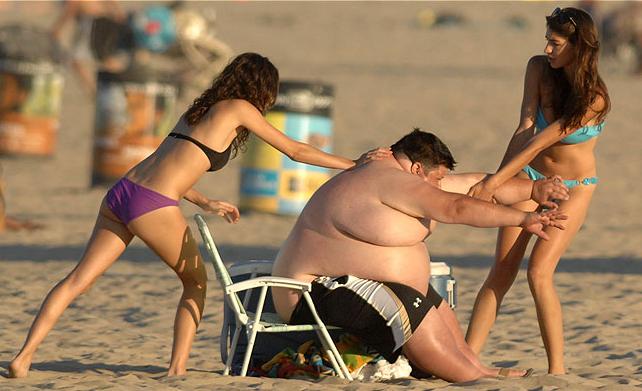“Generally, one joins a yoga society in order to improve his health, to reduce fat. People in rich nations eat more, become fat, and then pay exorbitant prices to so-called yoga instructors in order to reduce. People try to reduce by all these artificial gymnastics; they do not understand that if they just eat vegetables or fruits and grains, they will never get fat.
People get fat because they eat voraciously, because they eat meat. People who eat voraciously suffer from diabetes, overweight, heart attacks, etc., and those who eat insufficiently suffer from tuberculosis. Therefore moderation is required, and moderation in eating means that we eat only what is needed to keep body and soul together. If we eat more than we need or less, we will become diseased.”
The Path of Perfection Chapter Four
by His Divine Grace A. C. Bhaktivedanta Swami Prabhupada
_________________________________________________________

Health News | Why Americans live shorter lives
LOS ANGELES, July 28 (UPI) — The U.S.-European life expectancy gap would disappear if obesity, diabetes and hypertension among middle-age Americans dropped to European levels, experts say.
Dana Goldman, director of the Schaeffer Center for Health Policy and Economics at University of Southern California, and colleagues at Rand Corp. and Harvard School of Public Health, say 40 years ago, Americans could expect to live slightly longer than Europeans. However, today, Americans live about a year-and-a-half less, on average, than their Western European counterparts, and die younger than people in most other developed nations.
The researchers find health in middle-age, around age 50, is overwhelmingly the main contributor to disparities in life expectancy between Americans and Europeans — not U.S. healthcare system inefficiency.
They conclude getting 50-year-old U.S. adults as healthy as Europeans could save Medicare and Medicaid $632 billion by 2050.
“The international life expectancy gap appears much easier to explain than gaps within countries: there is no American-specific effect on longevity beyond differences in disease at age 50,” says Darius Lakdawalla, an associate professor in the USC School of Policy, Planning and Development.
The findings are published in the journal Social Science & Medicine.







Speak Your Mind